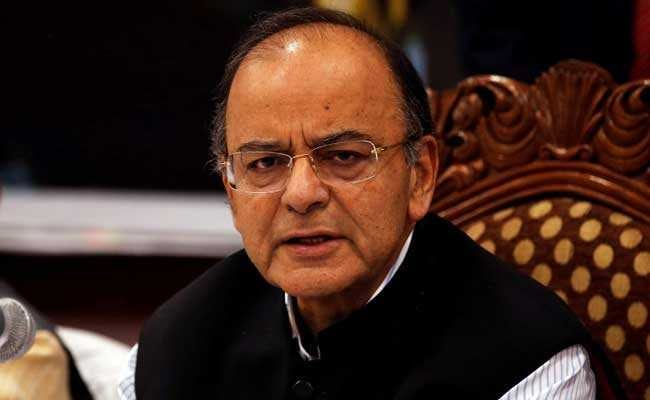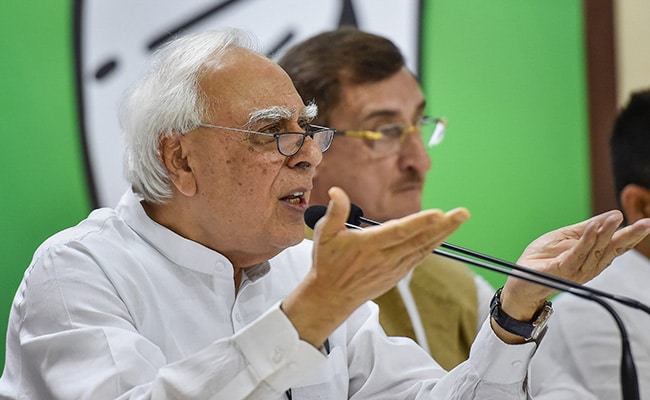
Arun Jaitley in a Facebook post criticised the Congress over the impeachment motion
New Delhi:
The Congress's plan to approach the Supreme Court after its impeachment motion against the Chief Justice of India was rejected by the Rajya Sabha Chairman, is a "suicidal future move", Finance Minister Arun Jaitley said in a Facebook post on Tuesday.
On Monday, hours after Vice President and Rajya Sabha Chairman M Venkaiah Naidu rejected the impeachment motion against Chief Justice Dipak Misra, moved by the Congress and six other parties, senior Congress leader Kapil Sibal had said the party would go to the Supreme Court to challenge the decision.
"A suicidal future move of the Congress," Mr Jaitley said on the Congress's plan to approach the top court over the Rajya Sabha Chairman's decision.
Mr Naidu has said his decision was "not hasty" and came after "over a month of due diligence". The notice was submitted on Friday but Mr Naidu said he had been prepping for such a decision for over a month because of media reports on opposition talks.
Arun Jaitley in the Facebook post said the Chairman has the sole discretion whether to admit the motion or decline it. "The power to admit or to decline a motion is part of the legislative process of parliament," he said.
"The Parliament is supreme in its own jurisdiction. Its process cannot be subjected to judicial review," Mr Jaitley said.
 This is the second Facebook post within a week by the finance minister who is also a lawyer himself, on the impeachment motion against Chief Justice Dipak Misra.
This is the second Facebook post within a week by the finance minister who is also a lawyer himself, on the impeachment motion against Chief Justice Dipak Misra.
"The incidental impact of this (impeachment motion) has been a growing tendency of lawyer Members to drag intra court disputes into the parliamentary process. The misconceived motion for the impeachment of the Chief Justice of India is just one example of this," said Mr Jaitley.
In the post titled "Why the Malafide Impeachment Motion was bound to fail?" Mr Jaitley said the Congress party is capable of dragging judges into an "unsavoury controversy and make them controversial, should their judicial opinion not appear favourable in the cases in which the Party has an interest."
Last week, the Supreme Court rejected petitions seeking an independent probe into the death of judge BH Loya in 2014 while deciding on murder charges against BJP president Amit Shah. The top court called the petitions for an independent probe "scandalous" and a "frontal attack on the judiciary".
A bench headed by Chief Justice Dipak Misra had said the petitions were in criminal contempt, based on the statement of four Mumbai judges who were with Judge Loya at the time and had asserted that he died of natural causes.
Judge Loya, 48, was hearing the Sohrabuddin Sheikh fake encounter case, in which Amit Shah was an accused, when he died of a heart attack in Maharashtra's Nagpur, where he was attending a wedding. The judge who replaced him ruled there was not enough evidence against Amit Shah to merit a trial and discharged the BJP chief. The top court, without naming anyone, said it "takes strong exception to insinuation that one individual controls judiciary".
On Monday, hours after Vice President and Rajya Sabha Chairman M Venkaiah Naidu rejected the impeachment motion against Chief Justice Dipak Misra, moved by the Congress and six other parties, senior Congress leader Kapil Sibal had said the party would go to the Supreme Court to challenge the decision.
"A suicidal future move of the Congress," Mr Jaitley said on the Congress's plan to approach the top court over the Rajya Sabha Chairman's decision.
Mr Naidu has said his decision was "not hasty" and came after "over a month of due diligence". The notice was submitted on Friday but Mr Naidu said he had been prepping for such a decision for over a month because of media reports on opposition talks.
Arun Jaitley in the Facebook post said the Chairman has the sole discretion whether to admit the motion or decline it. "The power to admit or to decline a motion is part of the legislative process of parliament," he said.
"The Parliament is supreme in its own jurisdiction. Its process cannot be subjected to judicial review," Mr Jaitley said.

Kapil Sibal said never before in India's history had a motion been dismissed at the preliminary stage
"The incidental impact of this (impeachment motion) has been a growing tendency of lawyer Members to drag intra court disputes into the parliamentary process. The misconceived motion for the impeachment of the Chief Justice of India is just one example of this," said Mr Jaitley.
In the post titled "Why the Malafide Impeachment Motion was bound to fail?" Mr Jaitley said the Congress party is capable of dragging judges into an "unsavoury controversy and make them controversial, should their judicial opinion not appear favourable in the cases in which the Party has an interest."
Last week, the Supreme Court rejected petitions seeking an independent probe into the death of judge BH Loya in 2014 while deciding on murder charges against BJP president Amit Shah. The top court called the petitions for an independent probe "scandalous" and a "frontal attack on the judiciary".
A bench headed by Chief Justice Dipak Misra had said the petitions were in criminal contempt, based on the statement of four Mumbai judges who were with Judge Loya at the time and had asserted that he died of natural causes.
Judge Loya, 48, was hearing the Sohrabuddin Sheikh fake encounter case, in which Amit Shah was an accused, when he died of a heart attack in Maharashtra's Nagpur, where he was attending a wedding. The judge who replaced him ruled there was not enough evidence against Amit Shah to merit a trial and discharged the BJP chief. The top court, without naming anyone, said it "takes strong exception to insinuation that one individual controls judiciary".
Track Latest News Live on NDTV.com and get news updates from India and around the world

